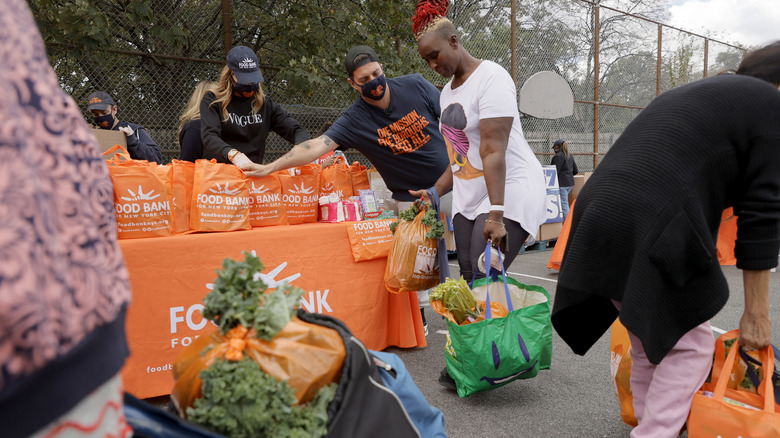New Study Shows People Think Food Inflation Is Way Higher Than It Is
How much would you say food prices have increased in the last year? According to a new survey by Dunnhumby Consumer Trends Tracker, most Americans believe costs have risen more than they actually have — over nine points more. A Dunhumby press release shared data from the Bureau of Labor Statistics which has pegged food at home inflation at about 13.1% over 2021 — a figure which The Epoch Times lists as the highest annual price hike in 40 years. However, when asked how much food prices were up, Americans suggested the rate was between 22-23%.
While it is not immediately clear where the very specific 22.8% figure has come from, it is likely that Americans are exaggerating the cost of food in their minds because of the impact of the actual, record-setting prices — a result of combined factors, including supply-chain issues, the war in Ukraine, and climate change impacting harvests — are having on their household budgets. Business Wire noted that 64% of Americans surveyed said they would struggle to pay an unexpected bill that cost more than $400 and that 31% of households skipped or cut down the size of meals in the last year because there was not enough food. Combined with soaring rent, which Vox reports has increased almost as much as food prices in the last year — about 12.3% in August — consumers are feeling squeezed, and it may be easier to attribute it to the bills they see on a daily or weekly basis.
Struggling to eat well
This inflation and the exaggerated view of it that many Americans are operating under has led to a number of changes in how people are shopping. The Dunnhumby press release notes that 75% of shoppers are placing a higher value on stores with low base prices, even those in families making more than $100,000 per year. As a result, people are doing more price comparisons online before heading out shopping, trading out brand names for better deals on store brands, and frequenting big box stores and other low-price retailers as opposed to higher-end grocers or luxury stores. These trends were corroborated by a CNN poll, which also noted that many families reported scaling back their grocery purchases and eating out less to make their money go further.
Aside from changing how people shop, The Guardian reports that the issue could have long-term societal health impacts as nutritious foods like whole wheat bread and fresh vegetables are more expensive and harder to afford on a tight budget. This is something that could lead to increased rates of conditions like diabetes and heart disease. These issues, which Americans are forced to confront on a regular basis are probably why NPR has listed inflation as one of the top two issues voters have listed as most important alongside abortion rights when looking towards the midterm elections in November.

